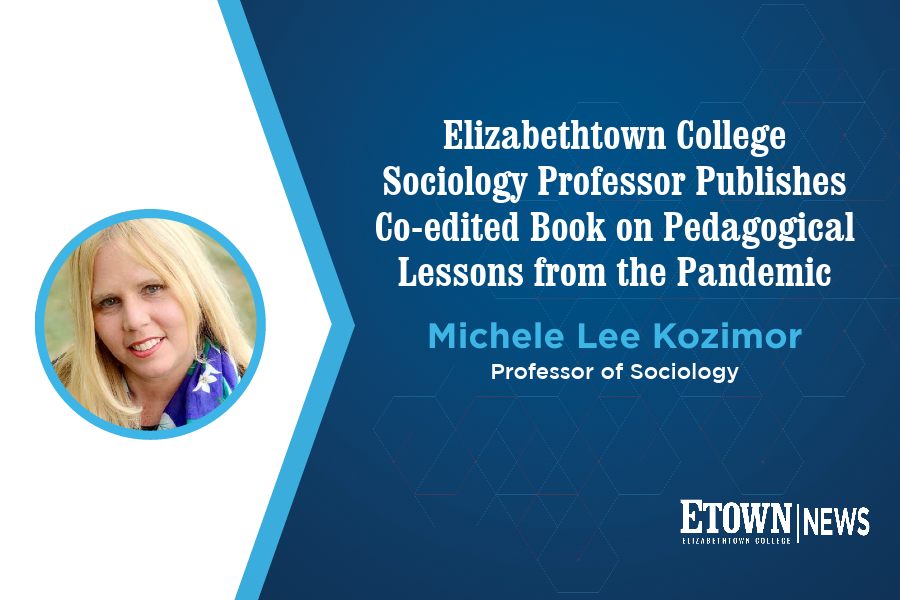Elizabethtown College Professor of Sociology, Dr. Michele Lee Kozimor ’93 recently published the co-edited book, “Emerging Stronger: Pedagogical Lessons from the Pandemic” by Routledge Publishing, focused on responses to the sudden and far-reaching implications of the COVID-19 pandemic in college classrooms and on campus.
Kozimor, who co-edited the volume with Jeffrey Chin, a Professor of Sociology at Le Moyne College in Syracuse, N.Y., also contributed to the publication by co-authoring the chapter, “Setting Expectations: Using the Four Tendencies Framework in Higher Education,” with Assistant Professor of Sociology at Lebanon Valley College and fellow Elizabethtown College Sociology alumna, Dr. Barbara Prince ’12.
In the chapter, they introduce Gretchen Rubin’s “Four Tendencies” as a framework for improving teaching, increasing student engagement, managing classroom dynamics, and enhancing mentoring relationships in higher education.
“Above all, I believe this volume will provide readers with practical and relevant teaching and learning techniques, but more importantly, it will serve as one more step toward building a community of hopefulness among teacher-scholars,” Kozimor said. “I am grateful to so many people for making this volume possible, but I would like to take this opportunity to thank my Elizabethtown College colleagues and students for their empathy, compassion, authenticity, and grace during the rapidly changing academic landscape.”
The current volume is Kozimor’s second edited volume, which follows up on the 2018 collection (published by the University of California Press) which provided best practices on teaching and learning. “Emerging Stronger” contains 15 chapters that revisit, reframe, and refine the practice of teaching in a now-altered landscape. Contributors are experts who represent a wide variety of academic fields, as well as professionals in centers for teaching and learning, instructional design, and community research.
The chapters in the volume are divided into three sections — Modalities of Teaching and Learning, Pedagogical Strategies, and Tools for Engagement. In each chapter, contributors describe the curricular innovation, pedagogical strategy, teaching tools and techniques, and evidence-based approaches that are useful for faculty in any discipline. Topics cover a range of subjects including belonging, empathy, trauma-informed practices, inclusive teaching, hope, grace, Afrofuturism, setting expectations, vocational discernment, podcasts, and retention.
Reviews by administrators and faculty from a range of institutions across the country, laud the publication for offering valuable, evidence-based strategies in response to college teaching challenges that emerged and were compounded by the pandemic.
“The coronavirus, shifting socio-demographics, and mental health issues have dramatically changed the higher education learning environment,” James A. Felton III, Vice President for Inclusive Excellence, The College of New Jersey stated about the volume. “Emerging Stronger is a timely and relevant text that provides insight for how new and experienced faculty can promote practical, yet inclusive and equitable approaches to teaching and learning.”

